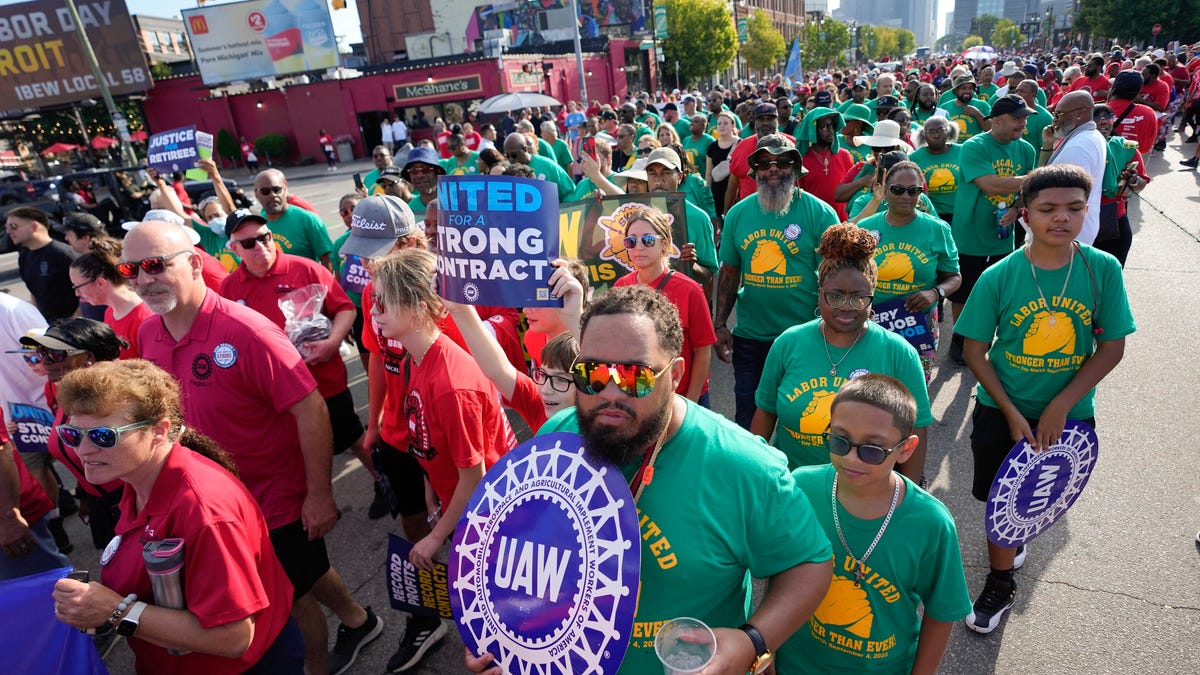About 146,000 U.S. Auto Workers Ready to Go on Strike
Detroit (AP) – If General Motors, Ford, and Stellantis fail to meet the demands of the United Auto Workers union, approximately 146,000 auto workers in the U.S. are prepared to go on strike this week. The demands include substantial pay raises and the reinstatement of previous concessions made by workers during the companies’ financial difficulties in the past.
The Impact on Consumer Spending and Stock Market
As negotiations continue, the question arises: how long can consumer spending continue to prop up the stocks? The president of the United Auto Workers union, Shawn Fain, is prepared to strike any company that does not reach an agreement by the contract deadline. This strike could cause significant disruptions in auto production throughout the United States.
Key Issues and Potential Consequences
The union is requesting a 46% raise in general pay over four years, which would greatly increase the wages of assembly plant workers. The UAW is also demanding an end to wage tiers, a 32-hour workweek with 40 hours of pay, the restoration of traditional pensions, and a return of cost-of-living raises. Another important demand is the representation of workers at electric vehicle battery factories, as the industry shifts towards EVs.
Currently, UAW workers hired after 2007 do not receive defined-benefit pensions and have less generous health benefits. In the past, the union sacrificed pay raises and cost-of-living adjustments to help the companies during financial crises. The automakers argue that the demands are too expensive and could lead to higher vehicle prices, making them less competitive globally.
While the companies have made contract offers with wage increases, lump-sum payments, and bonuses, the union sees them as insufficient. The possibility of a strike could lead to vehicle shortages and higher prices for consumers.
Union’s Stance and Potential Outcomes
The UAW has taken a confrontational stance, with its members voting overwhelmingly in favor of authorizing walkouts. However, Shawn Fain has expressed a desire to avoid a strike and reach agreements with the automakers. The ongoing negotiations and counteroffers will continue leading up to the strike deadline.
Potential Impact on the Economy and Companies
If a strike occurs, UAW workers would receive strike pay, which is significantly lower than their regular wages. This would result in millions of dollars in lost wages and affect the economy. The automakers would also incur significant losses, with a strike against all three companies potentially costing close to a billion dollars. The duration of the strike and the financial strength of the companies and the union will determine the overall impact.
While the union faces challenges in organizing foreign automakers’ factories, labor unions have seen success in other industries, achieving significant wage increases. Strikes have been on the rise this year, demonstrating the growing power of organized labor.
Denial of responsibility! Vigour Times is an automatic aggregator of Global media. In each content, the hyperlink to the primary source is specified. All trademarks belong to their rightful owners, and all materials to their authors. For any complaint, please reach us at – [email protected]. We will take necessary action within 24 hours.


